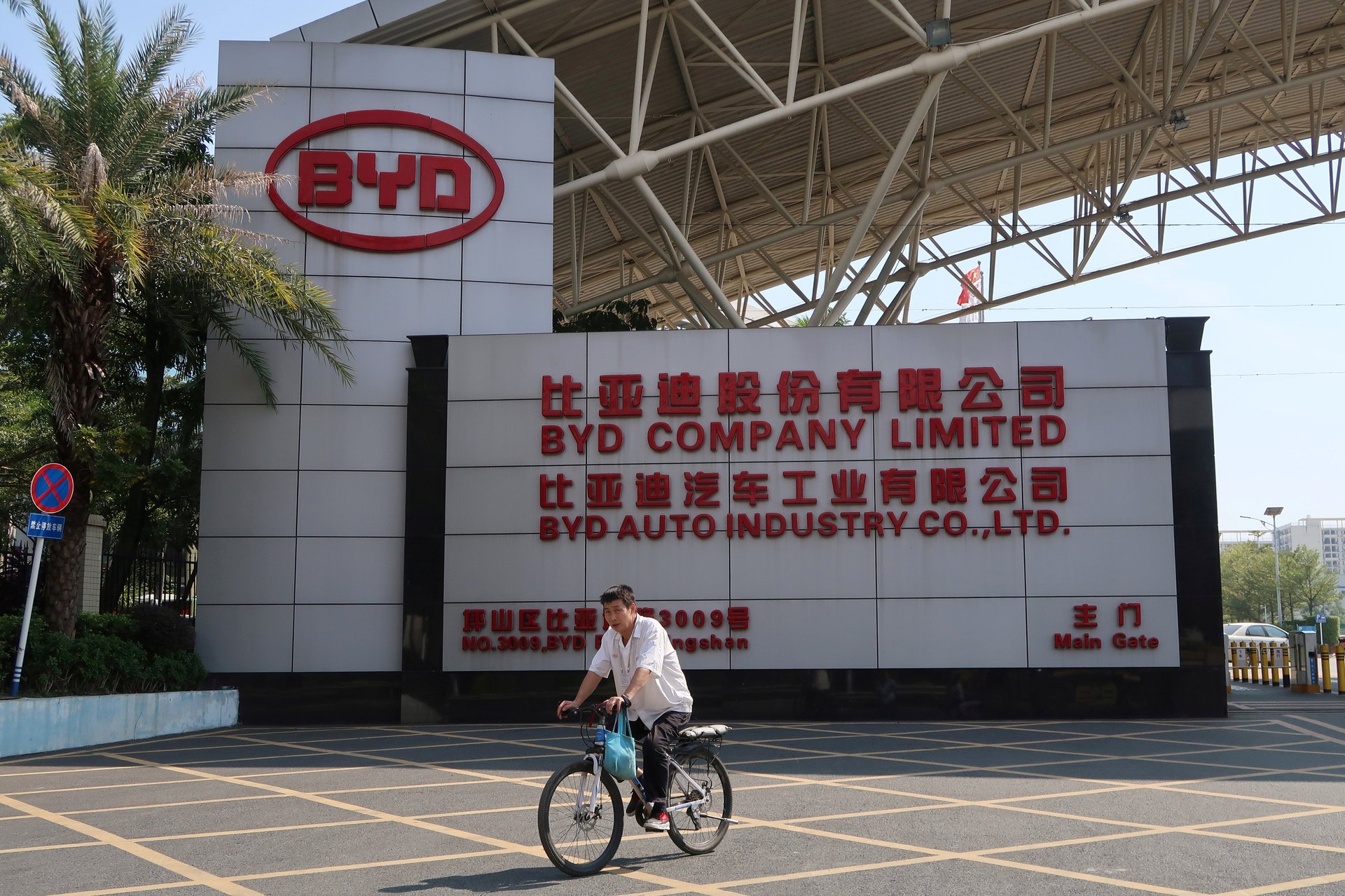BYD profit surged by 400% last year as the electric vehicle market keeps going in China
After posting record sales, China's largest EV company is looking to take on Tesla

BYD—China’s largest electric vehicle (EV) manufacturer—announced that it sold a record number of cars last calendar year, boosting the company’s profit by more than four times.
Suggested Reading
Profit grew 446%, to 16.6 billion yuan ($2.4 billion), reaching preliminary net income expectations that BYD published in January. The auto maker posted a 3 billion yuan ($436 million) profit in 2021.
Related Content
Partly owned by Warren Buffet’s Berkshire Hathaway, BYD is among the best poised to cash in on the rapidly growing EV market in China. Now, after dominating at home, the company aims to compete globally with Tesla, the world’s biggest EV manufacturer.
BYD sold 1.86 million electric and plug-in hybrids in 2022—with battery-only EVs making up about half of total sales—accounting for roughly a third of all new-energy vehicle sales in China. Tesla sold 1.31 million EVs last year.
The company is looking to expand into foreign markets, including the US and Europe. It’s also set to launch two new luxury-branded EVs this year, a pivot from the budget-friendly offerings that have been key to its rapid growth.
A dramatic increase in net income at BYD
Tesla has dramatically cut prices for its China fleet in recent months, seeking to undercut domestic competitors. The first price reduction on vehicles built at its Shanghai factory came in October, followed by another in January.
That makes the locally manufactured cars about 14% cheaper year-over-year, and almost 50% less expensive than Teslas sold in the US.
At least 30 electric vehicle companies, both domestic and foreign, were forced to slash prices to keep up with the Tesla discounts, according to a report from Bloomberg. Some Chinese manufacturers, like Xpeng and Nio, offered reductions of as much as 70,000 yuan ($10,000), while the Ford Mustang Mach-E is currently a third cheaper than it is in the US.
In response, the China Association of Automobile Manufacturers called for a pause on the discounts in a Chinese state media report, warning that “attention should be paid to prevent such acts from devolving into price wars.”
